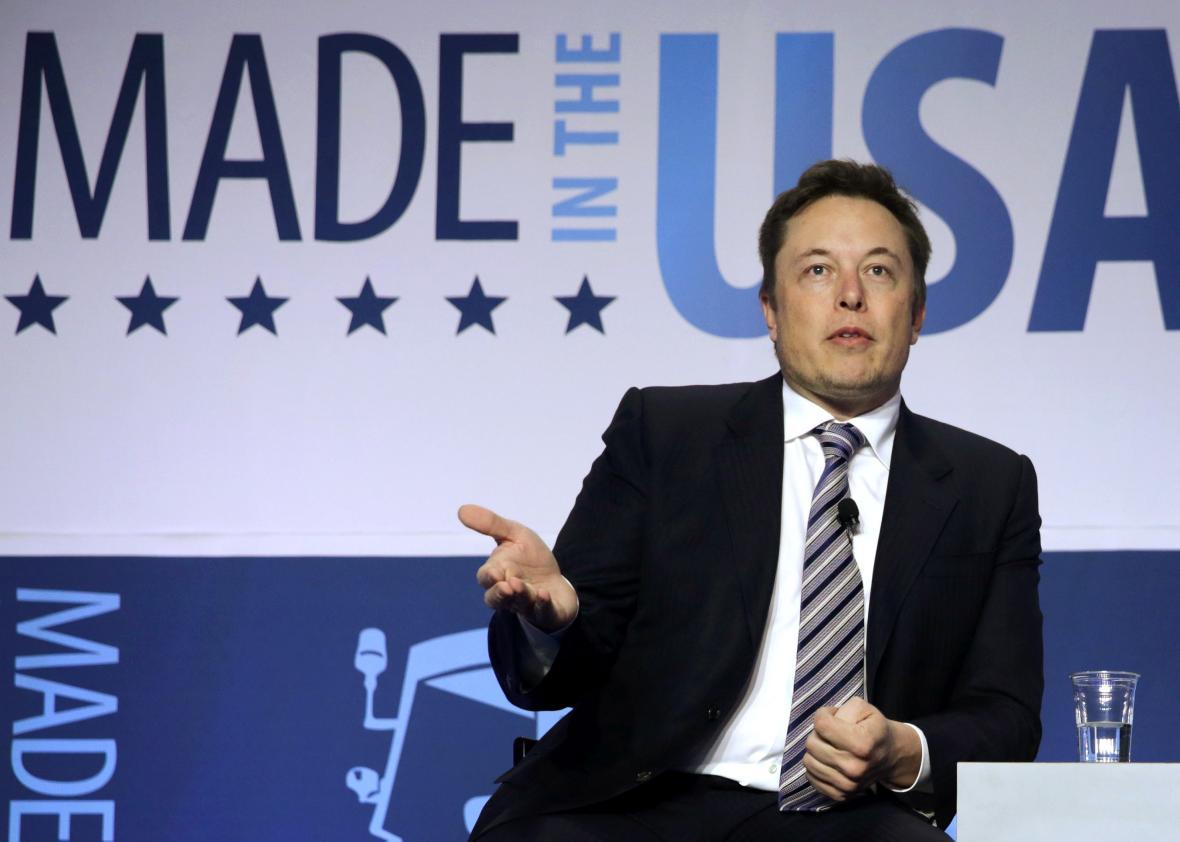Tesla founder Elon Musk, big-name venture capitalist Peter Thiel, LinkedIn co-founder Reid Hoffman, and several other notable tech names have launched a new artificial intelligence startup called OpenAI, assembling a particularly impressive array of A.I. talent that includes a top researcher from Google. But the idea, ostensibly, isn’t to make money.
Overseen by ex-Googler Ilya Sutskever and Greg Brockman, the former chief technology officer of high-profile payments startup Stripe, OpenAI has the talent to compete with the industry’s top artificial intelligence outfits, including Google and Facebook—but the company has been set up as a nonprofit. “Our goal is to advance digital intelligence in the way that is most likely to benefit humanity as a whole, unconstrained by a need to generate financial return,” Brockman said in a blog post.
The apparent aim is to build systems based on deep learning, a form of artificial intelligence that has proven extremely adept in recent years at identifying images, recognizing spoken words, translating from one language to another, and, to a certain extent, understanding the natural way that we humans talk. Sutskever is a protégé of Geoff Hinton, one of the founding fathers of the deep-learning movement, who now works for Google.
Deep learning relies on what are called neural networks, vast networks of machines that approximate the networks of neurons in the human brain. Feed enough photos of a cat into a neural net, and it can learn to identify a cat. Feed enough dialogue into a neural net, and it can learn to carry on a pretty good, if sometimes dodgy, conversation. The hope is that top researchers can take this much further. Some believe the method can even be used to mimic human common sense.
Currently, companies like Google and Facebook and Microsoft sit at the forefront of this movement. But OpenAI aims push the state of the art forward without worrying about financial gain. Instead, they intend to open-source their work, freely sharing it with the world at large. Recently, Google open-sourced the core software engine, TensorFlow, that drives its deep-learning services, and just this week, Facebook open-sourced its deep-learning hardware. They too are looking to advance the technology through widespread collaboration. But you have to wonder if they made these moves because they knew OpenAI was on the way.
OpenAI certainly has the pedigree to make some serious headway in the field. Musk and Thiel are co-chairs of the company. Other backers include Alan Kay, one of the founding fathers of the PC, and Yoshua Bengio, another top deep-learning researcher. Altogether, OpenAI says, its backers have committed $1 billion to the project. Sometimes you have to spend money, even if you don’t plan on making any.
Also in Wired:
Solar or Coal? The Energy India Picks May Decide Earth’s Fate
20 Awesome Gifts for Around $20
